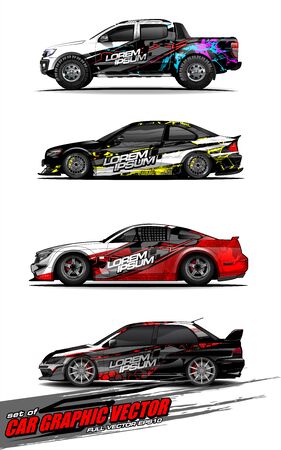1. Introduction to Braking Technologies
When it comes to driving safety, your vehicle’s braking system is one of the most important components you’ll ever deal with. In the United States, drivers have two main types of brake systems to choose from: electric brakes and hydraulic brakes. Understanding the basics of how each system works—and why your choice matters—can help you make smarter decisions, whether you’re towing a trailer, hauling heavy loads, or just commuting in city traffic.
How Electric Brakes Work
Electric brakes use an electrical current from your vehicle’s brake controller to activate magnets inside the brake drums. When you press on the brake pedal, the controller sends power to these magnets, which then pull against the drum and create friction to slow down or stop your vehicle. This setup is especially common on trailers and RVs across America because it allows for easy adjustment and control from inside the cab.
How Hydraulic Brakes Work
Hydraulic brakes rely on fluid pressure to get the job done. When you press the brake pedal, it pushes brake fluid through lines to either disc or drum brakes at each wheel. The fluid pressure causes pads or shoes to clamp down, creating friction that slows your vehicle. Hydraulic systems are found in most cars, trucks, and SUVs in the U.S., thanks to their reliable stopping power and smooth performance.
Main Differences at a Glance
| Feature | Electric Brakes | Hydraulic Brakes |
|---|---|---|
| Activation Method | Electric current (magnet-based) | Fluid pressure |
| Main Usage | Trailers, RVs | Cars, trucks, SUVs |
| Adjustment | From inside vehicle (brake controller) | Automatic/self-adjusting (most modern vehicles) |
| Maintenance Needs | Magnet and wiring checks | Fluid checks and leak repairs |
Why Choosing the Right System Matters for U.S. Drivers
The right braking system isn’t just about convenience—it’s about safety and legal compliance. For example, towing laws in many states require certain types of brakes depending on your trailer’s weight. Also, choosing between electric and hydraulic brakes can impact how smoothly you stop on steep hills, busy highways, or in bad weather. Picking the right system means better control behind the wheel and peace of mind wherever you travel.
2. How Electric Brakes Work
Electric brakes are a popular choice for RVs and trailers in the United States, thanks to their reliable performance and ease of use. Understanding how these brakes work can help you make better decisions when choosing or maintaining your trailers braking system.
The Basics of Electric Braking Systems
Electric brakes use electrical power from the tow vehicle to activate the brakes on the trailer. When you press the brake pedal in your truck or SUV, an electric signal is sent through a special wiring harness to the trailer’s brakes. This process helps both vehicles slow down smoothly and safely, especially when carrying heavy loads.
Main Components of Electric Brake Systems
| Component | Description | Common Location |
|---|---|---|
| Brake Controller | Device inside the tow vehicle that sends signals to the trailer brakes | Tow vehicle dashboard |
| Electromagnet | Receives electricity and creates magnetic force to move brake shoes | Inside each trailer wheel hub |
| Brake Shoes & Drum | Pads that press against the drum to create friction and stop the wheel | Trailer axle assembly |
| Wiring Harness | Carries electric current from tow vehicle to trailer brakes | Between tow vehicle and trailer connection point |
How It All Comes Together During Braking
When you hit the brakes in your tow vehicle, here’s what happens step by step:
- The brake controller senses pressure from your foot on the pedal.
- An electric current is sent via the wiring harness to the electromagnets in each trailer wheel hub.
- The electromagnet pulls on a lever attached to the brake shoes.
- The brake shoes press outward against the drum, creating friction and slowing down the trailer wheels.
- This coordinated action between your vehicle and the trailer makes highway driving and stopping much safer.
Why American Drivers Prefer Electric Brakes for RVs and Trailers
- User-Friendly Controls: Most American-made trucks and SUVs can be easily fitted with aftermarket brake controllers.
- Smooth Stopping Power: The amount of braking force can be adjusted depending on road conditions and load size—a big plus for cross-country trips or towing in hilly areas like Colorado or Appalachia.
- Easier Maintenance: Compared to hydraulic systems, electric brakes usually have fewer parts exposed to weather elements, making upkeep simpler for DIYers.
- Compatibility: They’re widely compatible with a variety of trailers, including travel trailers, utility trailers, horse trailers, and even boat trailers commonly seen at American campgrounds and highways.

3. How Hydraulic Brakes Work
Understanding Hydraulic Brake Systems
Hydraulic brakes are the most common type of braking system found in cars and trucks throughout the United States. This technology has been around for decades, making it a trusted choice for both everyday vehicles and heavy-duty trucks. The core principle is simple: hydraulic brakes use fluid to transfer force from your foot on the pedal to the brake pads that stop your wheels.
The Technology Behind Hydraulic Brakes
When you press the brake pedal, you’re pushing against a piston in the master cylinder. This action forces brake fluid through a network of tubes and hoses to each wheel. At the wheels, more pistons push the brake pads or shoes against a spinning surface (either a disc or drum), creating friction that slows the vehicle down. This system allows for smooth and even braking, which is especially important at high speeds or when carrying heavy loads.
Main Components of Hydraulic Brake Systems
| Component | Function |
|---|---|
| Master Cylinder | Converts pedal force into hydraulic pressure |
| Brake Lines & Hoses | Carries brake fluid to each wheel |
| Brake Calipers/Cylinders | Applies pressure to brake pads or shoes |
| Brake Pads/Shoes | Create friction to slow down or stop wheels |
| Brake Rotors/Drums | The surfaces that pads/shoes press against to create stopping power |
Why Are Hydraulic Brakes So Popular in America?
Hydraulic brakes are favored because they offer reliable performance under a wide range of conditions—whether you’re driving across flat highways, navigating city traffic, or hauling a trailer through the mountains. Their design is also relatively straightforward, which means maintenance and repairs are generally affordable and accessible at most U.S. auto shops.
4. Pros and Cons: Electric Brakes
Electric brakes have become increasingly popular on American roads, especially for trailers, RVs, and certain types of light trucks. Understanding the advantages and disadvantages of electric brakes can help you make a better decision when choosing the right braking system for your vehicle or trailer.
Key Advantages of Electric Brakes
- Cost-Effective: Electric brake systems are generally more affordable than hydraulic alternatives, both in terms of initial purchase price and ongoing maintenance costs.
- Easy Installation: These systems are usually easier to install because they require fewer components and no hydraulic lines. Many DIY enthusiasts in the U.S. appreciate how straightforward it is to add or replace electric brakes on their trailers.
- Simplified Maintenance: Maintenance is often less complicated since there are no fluids to check or bleed, reducing the mess and hassle that comes with hydraulic systems.
- Customizable Control: In most American towing setups, drivers can adjust the braking force directly from the cab using an electric brake controller, which is especially handy when traveling through hilly terrain or variable road conditions.
Main Disadvantages of Electric Brakes
- Reliability Concerns: Because electric brakes depend on your vehicle’s electrical system, any wiring issues or electrical failures can reduce braking performance or cause them to stop working altogether.
- Weather Sensitivity: Exposure to water, salt, or debris (like what you find during Midwest winters or on coastal highways) can lead to corrosion and electrical shorts if connections aren’t well protected.
- Less Stopping Power for Heavy Loads: Electric brakes may struggle with very heavy loads compared to hydraulic systems, making them less ideal for commercial trucking or frequent mountain driving with large trailers.
Quick Comparison Table: Electric Brake Pros & Cons
| Aspect | Pros | Cons |
|---|---|---|
| Cost | Lower upfront and maintenance costs | |
| Installation | Straightforward; fewer components required | |
| Maintenance | No fluids; easy part replacement | |
| User Control | Cab-mounted controller for quick adjustments | |
| Reliability | Affected by electrical faults/wiring issues | |
| Weather Resistance | Vulnerable to water and corrosion if unprotected | |
| Performance with Heavy Loads | May not match hydraulic stopping power for large trailers/trucks |
Real-World Example: Towing Across the U.S.
If you’re towing a camper across states like Texas or California, electric brakes offer easy adjustability for changing road conditions—think flat freeways versus winding mountain passes. However, if you hit rough weather in states like Michigan or New York, make sure your wiring is secure and protected from the elements to avoid unexpected brake issues.
5. Pros and Cons: Hydraulic Brakes
Understanding Hydraulic Brakes in the American Market
Hydraulic brakes have been a staple in the U.S. automotive scene for decades, powering everything from pickup trucks to family SUVs. This braking system uses fluid pressure to transfer force from your foot on the pedal to the brake pads, making it reliable and effective for most daily driving needs. Let’s break down where hydraulic brakes shine and where they might fall short, especially compared to electric systems.
Performance: Strong Stopping Power
Hydraulic brakes are known for delivering consistent and powerful stopping force, which is why they’re standard on most cars, light trucks, and even some heavier vehicles found across American roads. They handle high temperatures well, so whether you’re towing a camper through the Rockies or navigating city traffic, they’ve got you covered.
Repair & Maintenance: Widespread Know-How
One big plus with hydraulic brakes is how easy it is to find repair shops that know them inside out. Parts are widely available, and most mechanics in the U.S. have years of experience working on these systems. However, hydraulic systems do require regular checks for leaks and occasional brake fluid replacement.
Vehicle Suitability: Versatile but Not Universal
Hydraulic brakes work well on a wide range of vehicles. Here’s a quick look at their fit for some common American rides:
| Vehicle Type | Hydraulic Brake Suitability |
|---|---|
| Sedans & SUVs | Excellent – Standard choice for everyday driving needs |
| Pickup Trucks | Very Good – Handles towing and heavier loads reliably |
| Commercial Vans | Good – Sufficient for most cargo and delivery vehicles |
| Heavy-Duty Trucks & RVs | Fair – Might need supplemental systems for max safety |
Pros and Cons at a Glance
| Pros | Cons |
|---|---|
| – Powerful, reliable stopping – Widely understood by mechanics – Affordable parts and maintenance – Performs well under heavy use |
– Can leak or lose pressure if not maintained – Needs periodic fluid changes – May require extra power assist for very large vehicles – Slightly less responsive than modern electric brakes in some scenarios |
The Bottom Line on Hydraulic Brakes in the U.S.
If you drive a typical car, SUV, or pickup truck in America, hydraulic brakes are tried-and-true. They offer solid performance, easy access to repairs, and are versatile enough for almost any road trip or daily commute. Just remember to keep up with basic maintenance like checking fluid levels and watching out for leaks to keep your ride safe.
6. Which System Is Right for You?
When it comes to choosing between electric and hydraulic brakes, there’s no one-size-fits-all answer. The right system really depends on your vehicle, how you plan to use it, and the kind of driving conditions you face here in the U.S. Let’s break it down so you can make the best choice for your needs.
Vehicle Type Matters
First things first: what are you driving? Some vehicles are better suited for electric brakes, while others benefit from hydraulic systems. Here’s a quick comparison:
| Vehicle Type | Recommended Brake System | Why? |
|---|---|---|
| Passenger Cars (Daily Commute) | Hydraulic Brakes | Smoother pedal feel, reliable stopping power for everyday use |
| Trucks/SUVs (Light Towing) | Electric or Hydraulic Brakes | Both work well; electric is easier to adjust for towing trailers |
| Heavy-Duty Trucks (Frequent Towing) | Electric Brakes (Trailer), Hydraulic (Vehicle) | Electric brakes are a must for trailers; hydraulic gives strong stopping power on truck |
| RVs & Travel Trailers | Electric Brakes | Easier installation and maintenance, especially when towing different loads |
| Performance Cars/Off-Road Vehicles | Hydraulic Brakes | Precise braking needed for high speeds or tough terrain |
Consider How You Drive
Your daily routine makes a big difference. If you spend most of your time commuting in city traffic or on highways, hydraulic brakes offer smooth, consistent performance that’s hard to beat. But if you’re hauling boats, campers, or horse trailers across long distances, electric brakes on your trailer can make life much easier—especially since many American highways require trailer brakes for heavier loads.
Towing and Hauling Needs
If towing is a big part of your lifestyle—think cross-country road trips with an RV or frequent boat launches—electric trailer brakes are almost always the way to go. They’re designed for easy connection between your tow vehicle and trailer, and many brake controllers let you fine-tune the braking force right from the driver’s seat.
Typical American Driving Conditions
From mountain passes in Colorado to rush hour in Los Angeles, American roads throw a lot at your brakes. Hydraulic brakes are known for their reliability in stop-and-go traffic and steep descents. Electric trailer brakes shine when dealing with changing loads or slippery road conditions because they can be adjusted on-the-fly.
Quick Reference Guide
| Your Situation | Best Choice | Main Advantage |
|---|---|---|
| Mainly city/highway driving, light loads | Hydraulic Brakes | Smooth operation and reliability |
| Towing trailers/RVs regularly | Electric Trailer Brakes + Hydraulic Vehicle Brakes | Customizable control and safer stops with heavy loads |
| Muddy/off-road adventures or performance driving | Hydraulic Brakes (with upgrades) | Responsive braking under challenging conditions |
| Diverse uses: switching between daily driving & towing often | Combination System (as vehicle allows) | The flexibility to handle both scenarios safely and comfortably |
The Bottom Line: Pick What Fits Your Life Best!
If you mostly drive around town or commute on highways without heavy loads, stick with hydraulic brakes—they’re tried-and-true for everyday driving. But if towing is part of your regular routine, consider electric brakes for your trailer paired with hydraulics on your main vehicle. Think about how you drive, what you haul, and where you travel most often. Choosing the right system will keep you safe—and make every drive a little less stressful.

